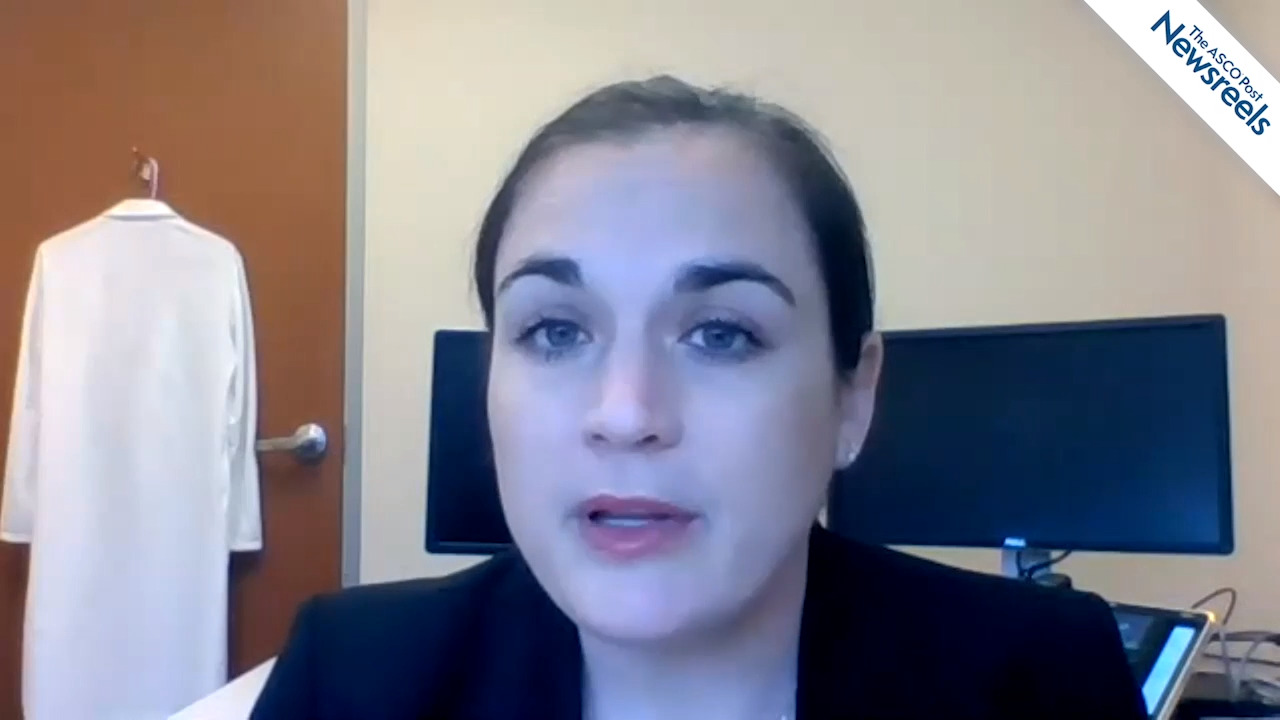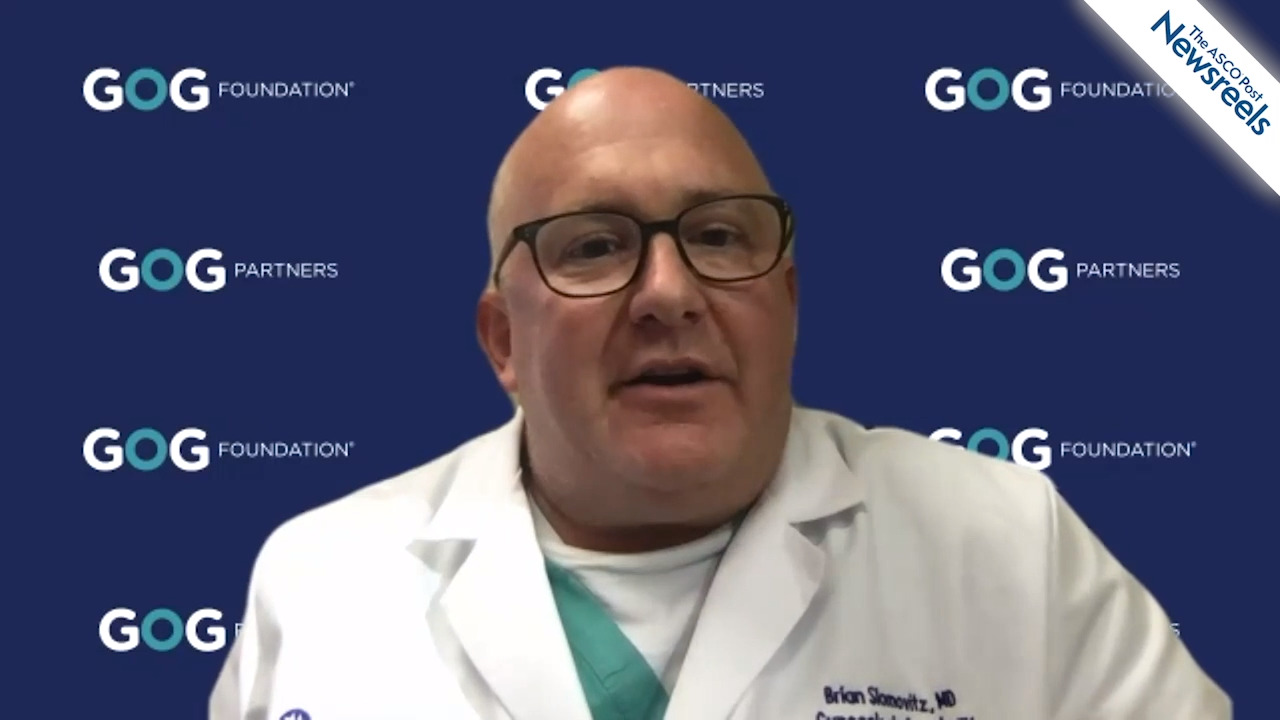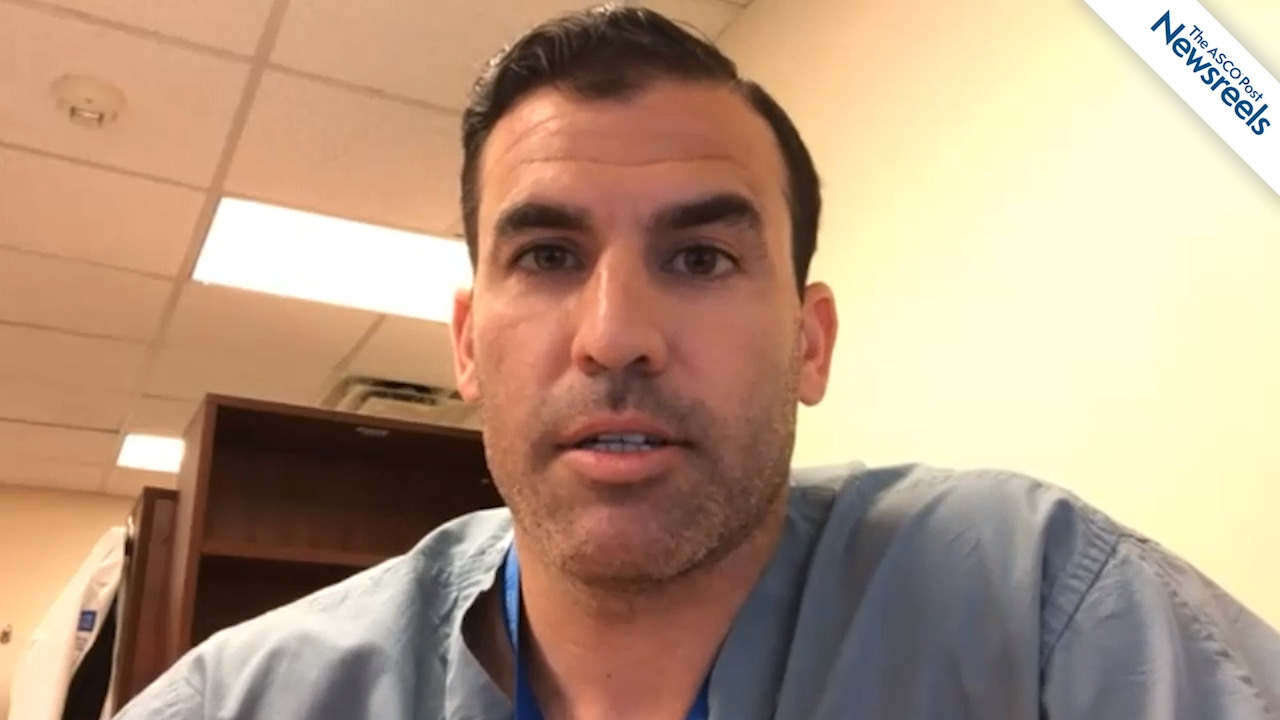Vicky Makker, MD, on Endometrial Cancer: Lenvatinib Plus Pembrolizumab
SGO 2021 Virtual Annual Meeting on Womens Cancer
Vicky Makker, MD, of Memorial Sloan Kettering Cancer Center, discusses phase III findings showing that lenvatinib plus pembrolizumab may improve overall and progression-free survival, as well as overall response rate, compared with treatment of physician’s choice for advanced endometrial cancer. These results were achieved regardless of mismatch repair status following platinum-based chemotherapy (ID #10191).
The ASCO Post Staff
Emily Hinchcliff, MD, MPH, of The University of Texas MD Anderson Cancer Center, discusses phase II results of durvalumab (anti–PD-L1) and tremelimumab (anti–CTLA-4) administered in combination vs sequentially for the treatment of recurrent platinum-resistant non–clear cell ovarian cancer (ID #10240).
The ASCO Post Staff
Brian M. Slomovitz, MD, of Florida International University, describes how emphasizing diversity and shifting away from clinical trials at universities helped The GOG Foundation, Inc., increase patient accrual by 50% in 2020 (ID # 10215).
The ASCO Post Staff
Lauren Thomaier, MD, of the University of Minnesota, discusses the genetic variants found to be associated with an increase in chemotherapy-induced neuropathy symptoms in a cohort of gynecologic cancer survivors. Combining these variants with clinical characteristics may provide an important treatment tool (ID# 10253).
The ASCO Post Staff
Eric Pujade-Lauraine, MD, PhD, of Hôpital Hôtel-Dieu, discusses results from the PAOLA-1ENGOT-ov25 trial on the use of homologous recombination–repair mutation gene panels and whether they can predict the efficacy of olaparib plus bevacizumab in first-line maintenance therapy for patients with ovarian cancer (ID# 10224).
The ASCO Post Staff
Anthony B. Costales, MD, of the Baylor College of Medicine, discusses results from the MIID-SOC trial, which explored the question of whether laparoscopic surgery for removal of ovarian, fallopian tube, or primary peritoneal cancer following neoadjuvant chemotherapy is feasible, safe, and provides similar outcomes as open surgery.





